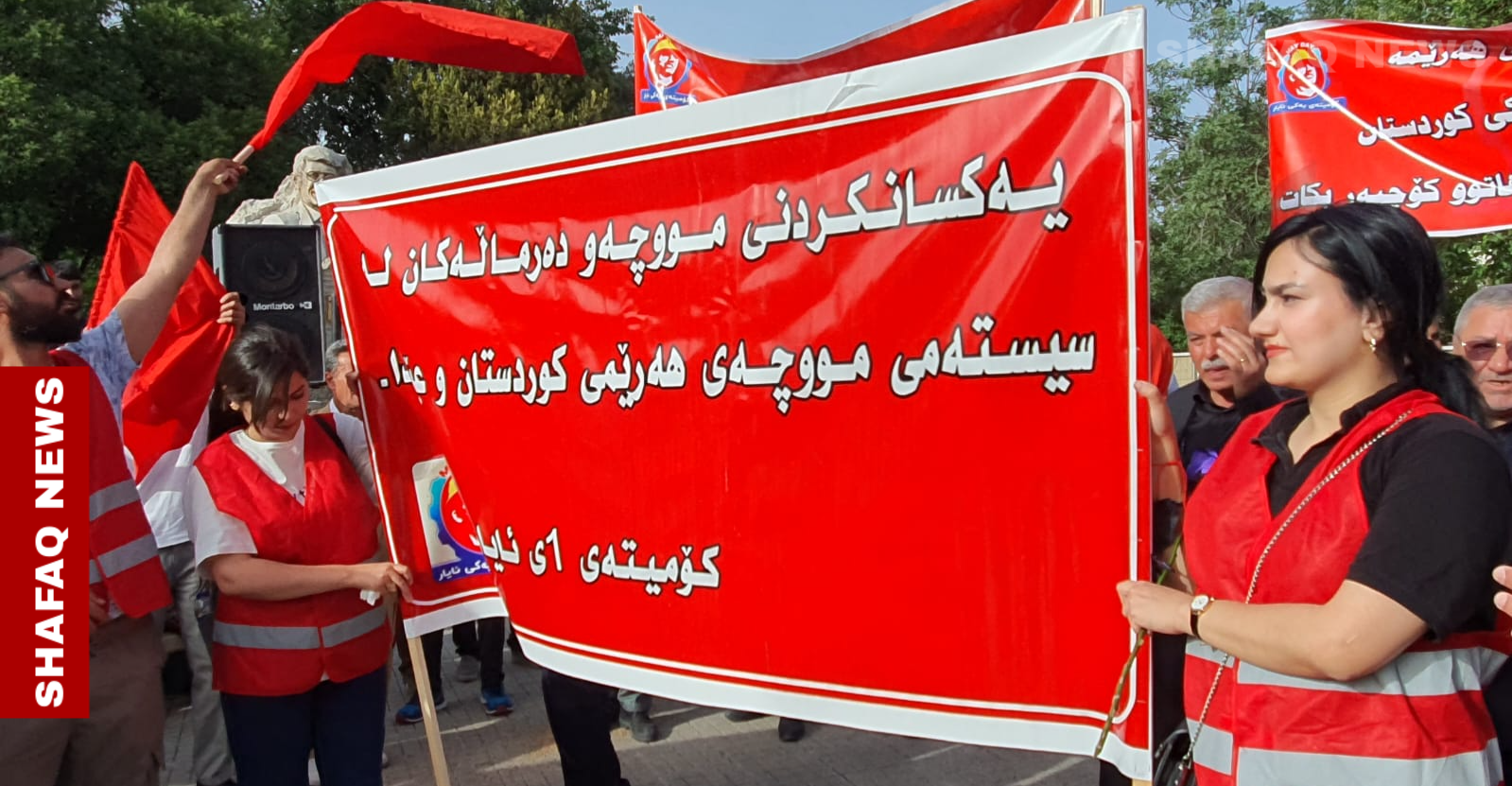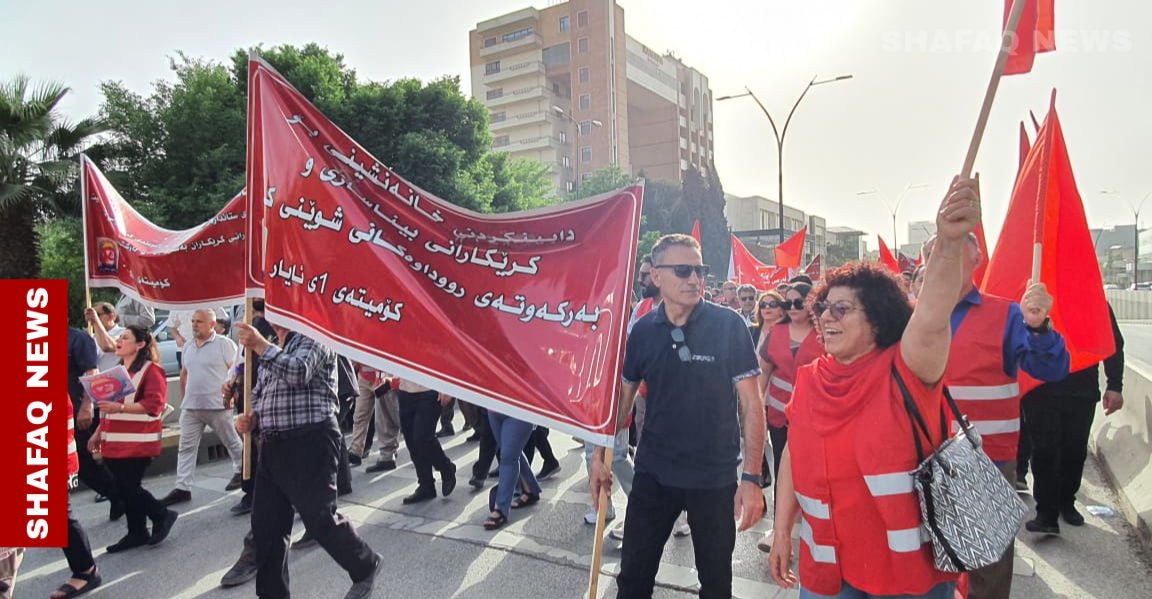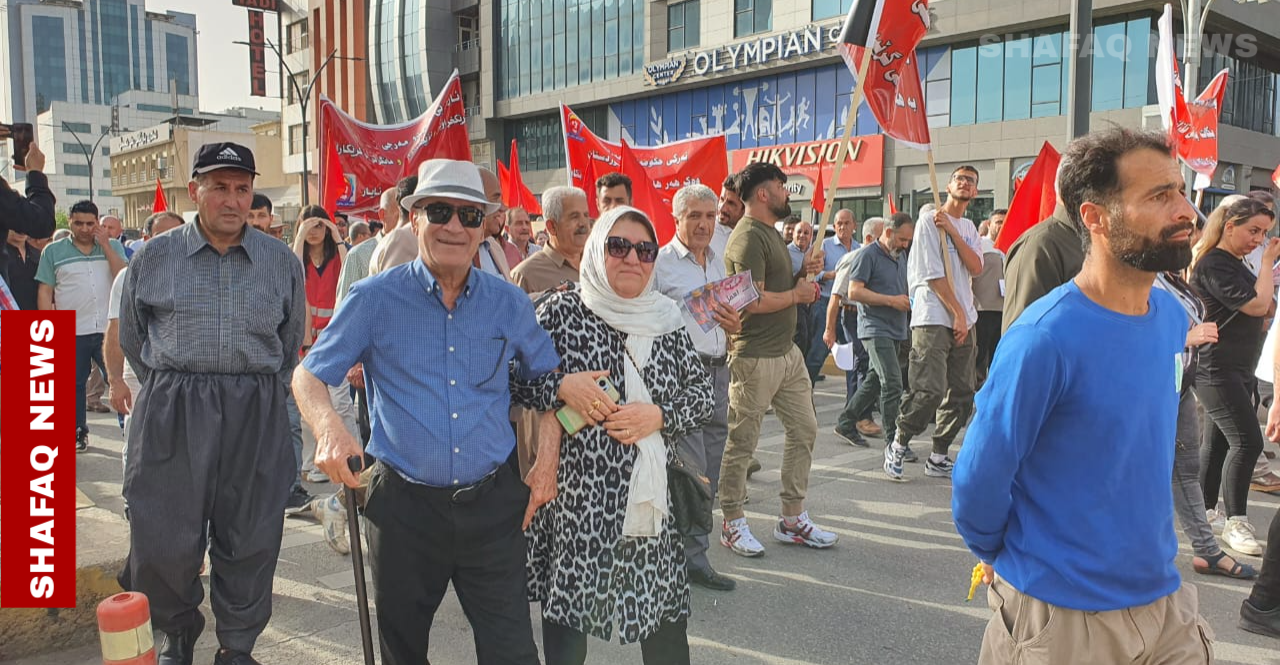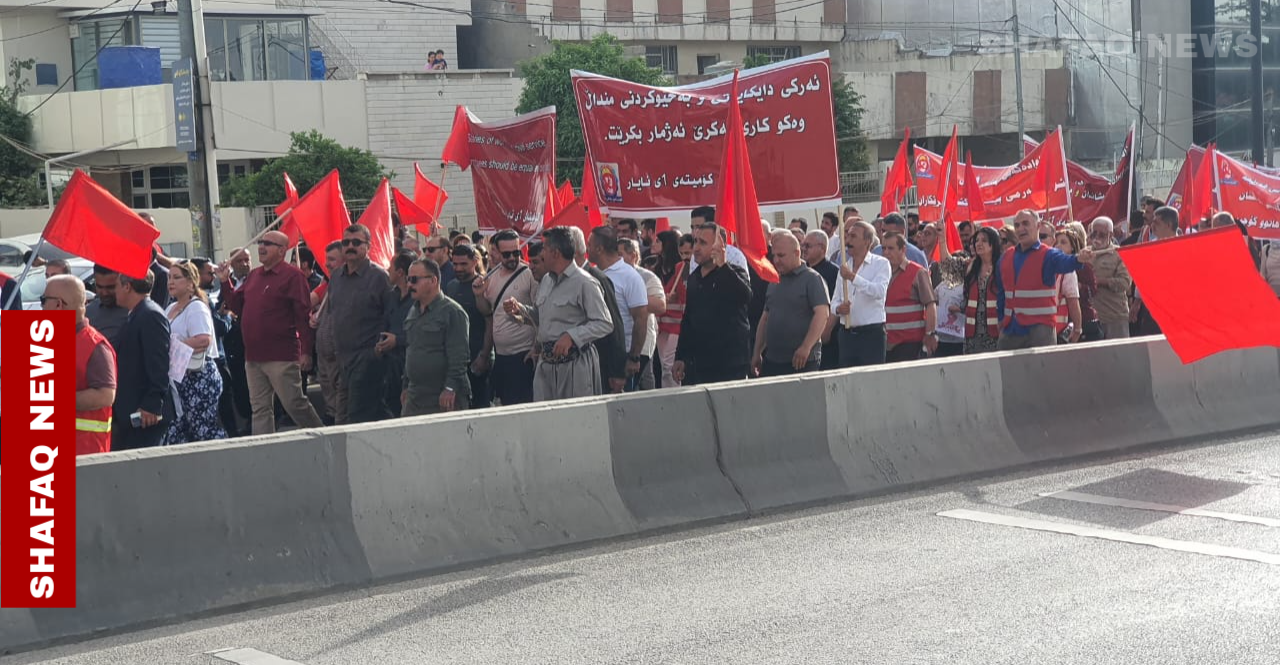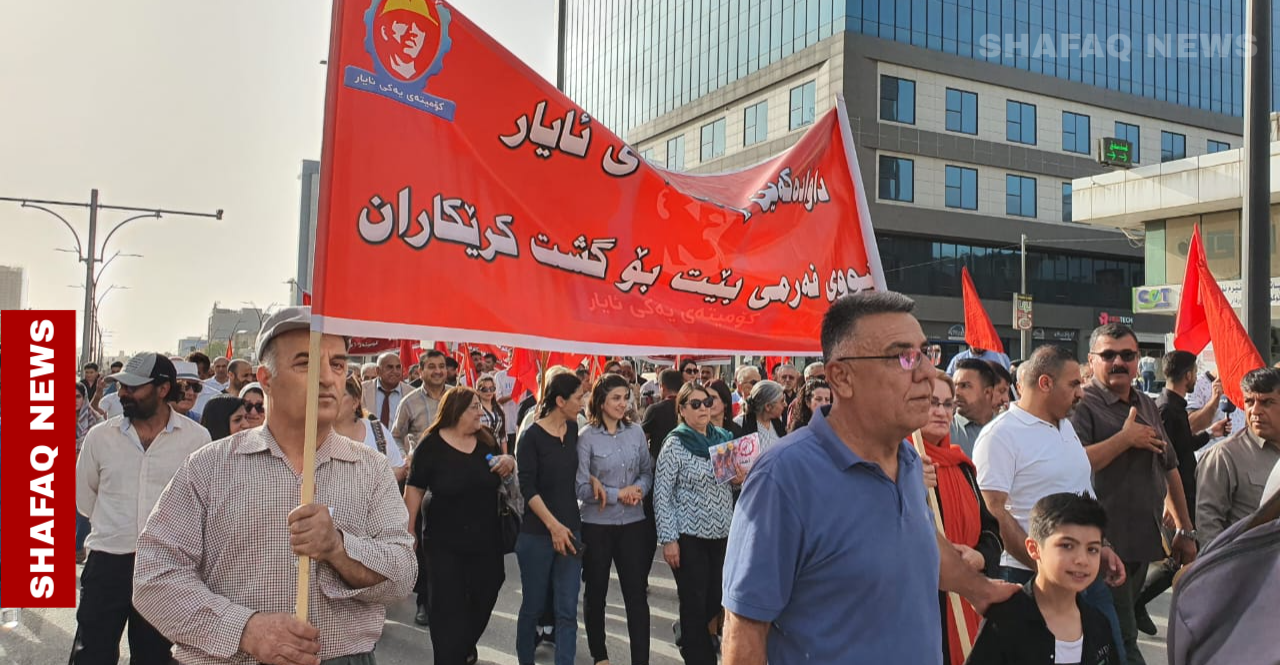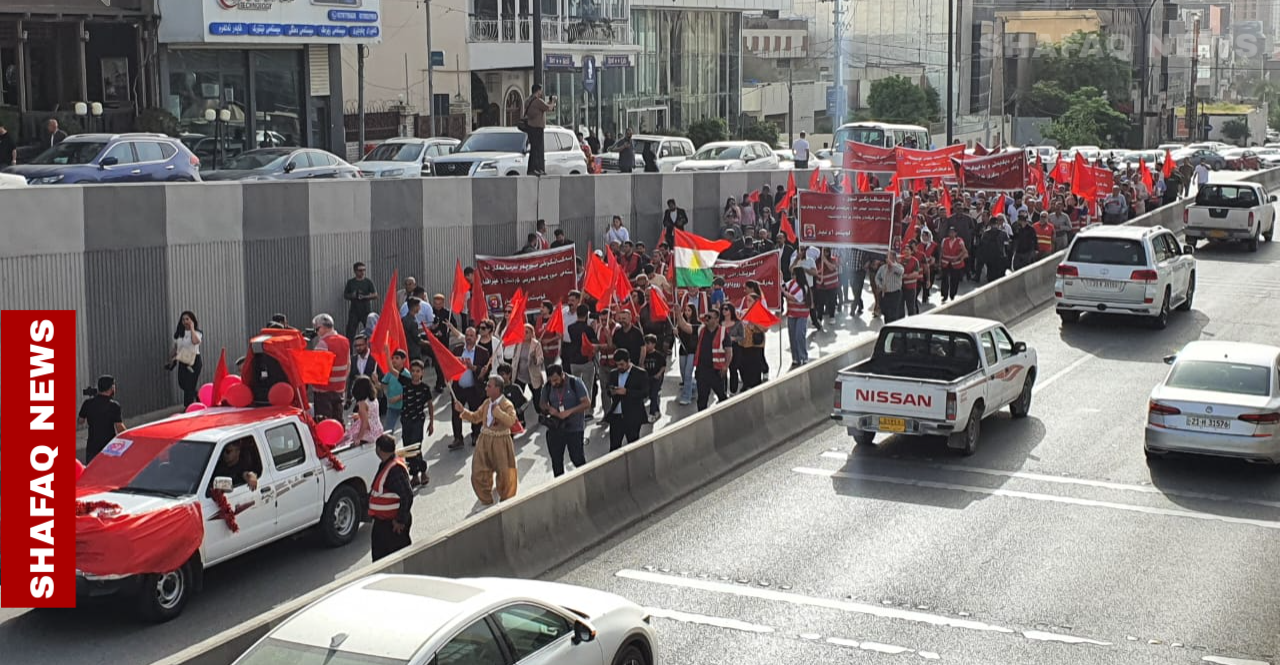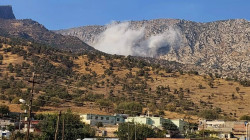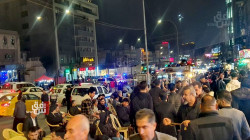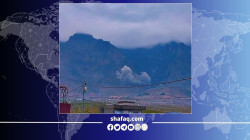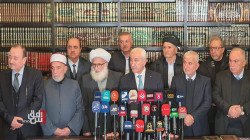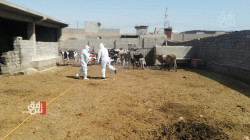May Day protests decry deteriorating labor conditions
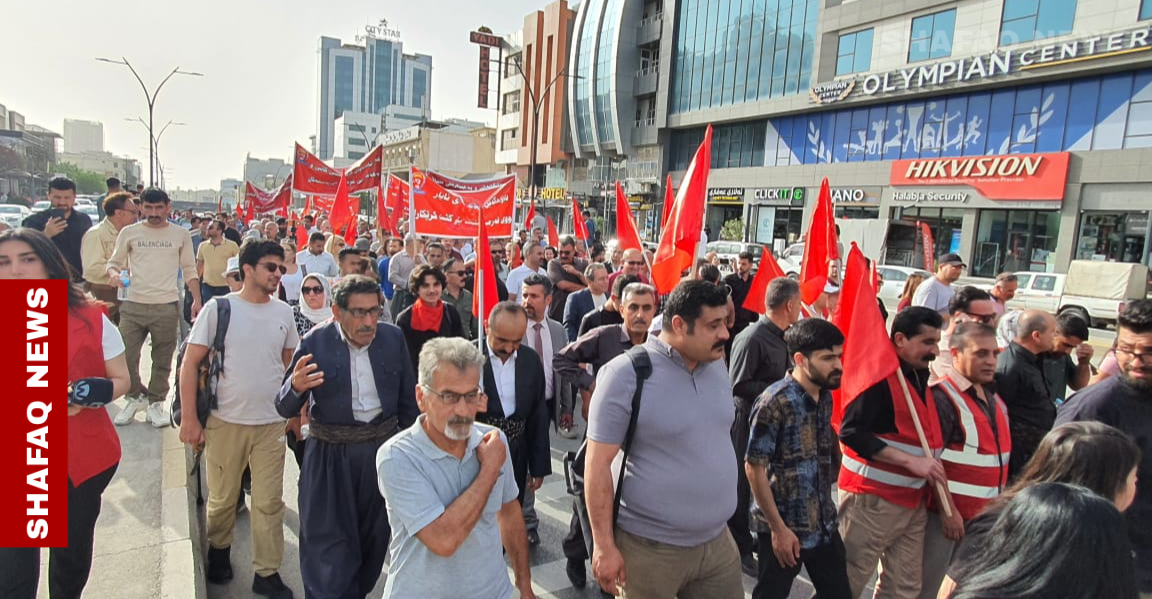
Shafaq News/ Workers across Iraq marked International Workers’ Day on Thursday with renewed calls for stronger labor protections, enforcement of wage and safety regulations, and action to address the growing challenges facing Iraq’s workforce, including unsafe job conditions, weak oversight, and the unchecked rise of foreign labor.
Dozens of workers, unionists, and civil society representatives took part in the march organized by the "May 1st Committee," carrying banners and denouncing what they described as deteriorating labor conditions and inadequate safety measures in workplaces. They called on the government and relevant institutions to take immediate action to ensure worker safety, reduce working hours, and provide full access to wages and retirement benefits under existing labor laws.
Protesters also called for activating labor inspection and oversight committees and ending the exploitation of workers in both the public and private sectors. They noted that despite constitutional and legal guarantees, effective legal protection for workers remains largely absent.
Organizers said 14 workers had died in job-related incidents across the Kurdistan Region during the first four months of 2025, including four in Al-Sulaymaniyah province alone.
Beyond Al-Sulaymaniyah, similar concerns are being voiced in other parts of the region, including Duhok, where workers and union leaders report comparable challenges.
The Head of the
Kurdistan Workers’ Union in Duhok Walat Ozmani told Shafaq News that three
workers had lost their lives this year in separate work-related incidents
across the province, while another suffered serious injuries, noting that Duhok
is home to over 100,000 local workers, in addition to roughly 15,000 foreign
laborers employed in construction, agriculture, industry, and service sectors.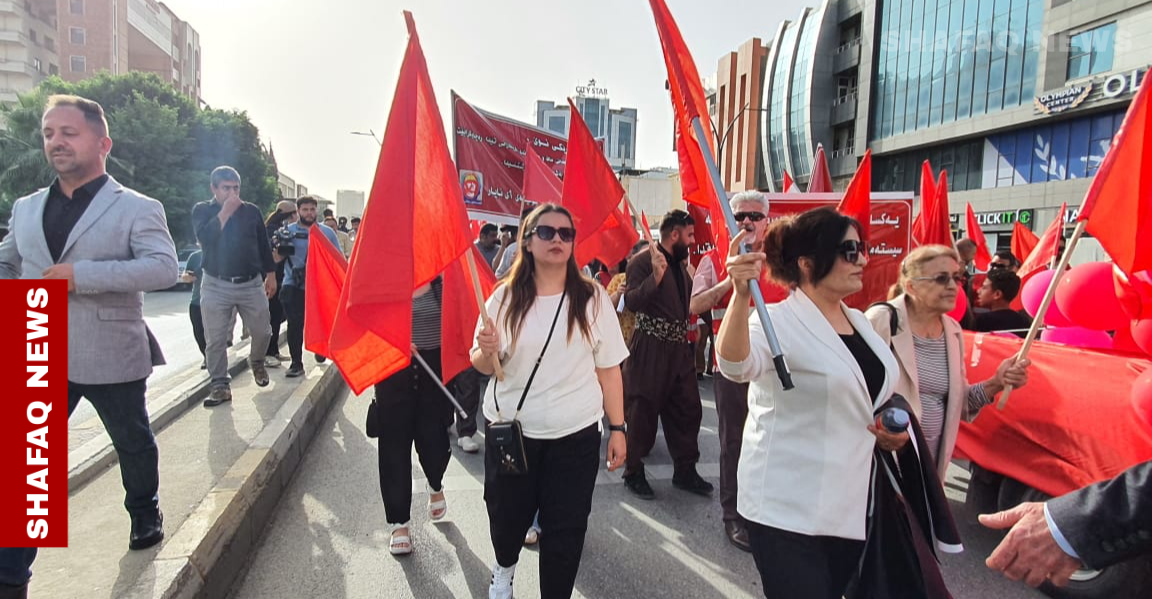
Ozmani urged the
government to establish a dedicated hospital for workers to treat occupational
injuries and called for the activation of the social security fund to provide
financial compensation during periods of unemployment or forced work stoppage.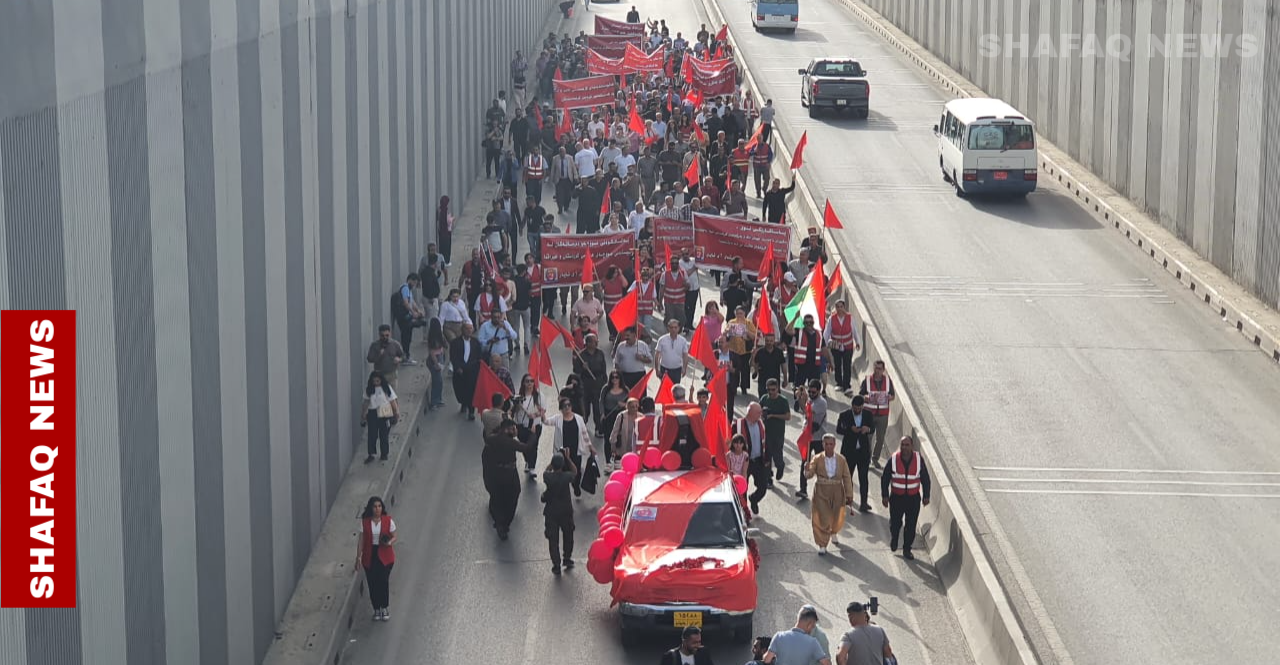
Several workers in Duhok expressed frustration with their working and living conditions, citing a lack of government support. “Workers in Kurdistan have no rights,” said laborer Mohammed Haji. “We work long hours without any protection from accidents or access to even basic health insurance.”
Jabar Doski, another worker, told Shafaq News that foreign labor has come to dominate much of the local job market. “Employers prefer hiring foreigners because they accept lower wages, which reduces opportunities for local workers,” he said.
Earlier today, Kurdistan Workers' Union President Hangaw Abdullah said in a statement that new official data showed approximately 35,000 women are employed across the Kurdistan Region, out of more than 194,000 registered workers.
Kurdish President Nechirvan Barzani stressed the need to provide safe working conditions and equal opportunities.
In Basra, the Federation of Labor Unions warned on Thursday that large segments of the workforce are facing ongoing violations, particularly the non-enforcement of the Social Security Law, and noted the rising number of foreign workers. Ahmad Al-Khafaji, head of the Basra Labor Union, told Shafaq News that the most affected sectors include tourism, cleaning services, and hospitals, where many workers earn below the legally mandated minimum wage.
“The legal minimum wage for unskilled workers is 350,000 dinars, and skilled workers should earn more than 400,000,” he said, calling on the government to strengthen oversight mechanisms to curb widespread labor violations.
Al-Khafaji added that foreign labor now exceeds 60% in Basra, with over 90% of workers in the restaurant sector being non-Iraqi. He warned of the economic implications, saying some companies pay foreign workers salaries exceeding $2,000 per month, raising concerns over money laundering and illegal currency transfers.
Regarding pressure on the public sector, he pointed out, “If the law is fully implemented, no graduate would need to demand a government job. Legal and economic protections for workers would be enough.”
